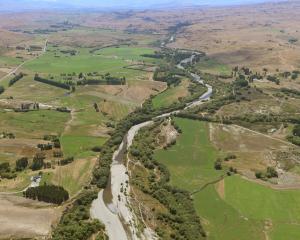Stock effluent spillages on to Otago roads had increased during the winter feeding and grazing period, leading to increased concerns about the health and safety hazard for pedestrians, cyclists, motorcyclists and road workers as well as risks to drivers from obscured vision and slippery road surfaces.
As a result, the regional council convened a meeting of those involved in the movement of stock, including police, the New Zealand Transport Agency and Federated Farmers, to discuss the situation, a report to be considered by the council's regulatory committee tomorrow said.
Council director of resource management Selva Selvarajah said the main causes were a lack of effluent disposal sites in Central Otago, some farmers not standing cows, more effluent storage on trucks, some truck drivers not emptying their truck's effluent containers and more livestock being shifted.
It was not a new issue, with the problem in the 1990s leading to the Otago Regional Council installing seven effluent collection sites, on or close to, State Highway 1 between Pukeuri and Raes Junction.
The sites are maintained by the territorial authorities except for Raes Junction, which the regional council looks after as the Central Otago District Council declined to fund it.
The Raes Junction site needed emptying about 85 times during May, the Allanton site 34 times in six months and the Pukeuri site eight times during May.
"Given the lack of further progress following the installations ... it is timely for ORC to act within its capacity and responsibility to improve the current situation."
Effectively dealing with the situation would require those involved recognising their respective responsibilities, Dr Selvarajah said.
"From a regulatory-roles-and-responsibilities viewpoint, ORC has a limited role in addressing the issue of stock truck effluent spillages on roads."
If farmers and trucking companies managed their responsibilities, the remainder of the responsibility lay with the transport agency, he said.
The meeting with those involved was positive and constructive. Staff felt substantial progress could be made on the issue before next winter's feeding and grazing season, he said.
The ORC would maintain a co-ordination and facilitation role, Dr Selvarajah said.












